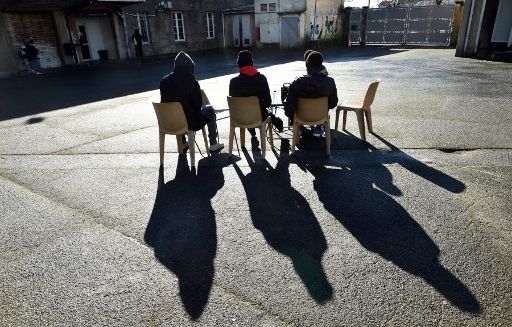Will it be a bastion of resistance? The “Pausa” center in Bayonne has welcomed more than 32,000 people since 2019 and “will continue to do so”, whatever happens on Thursday with the immigration law, assures the town hall.
The center is fully funded, to the tune of 900,000 euros annually, by the Basque Country Urban Communitychaired by the mayor of Bayonne and elected Renaissance Jean-René Etchegaray, has already hosted 500 migrants in January.
A tradition of welcome
Located on the banks of the Adour River, it welcomes, for an average of three days, women, children and young adults who then leave for major French or European cities.
While the Constitutional Council must render its decision on the immigration law on Thursday, Jean-René Etchegaray does not intend to abandon this center, the only one of its kind in France. “If this law were finally promulgated with provisions that hamper my personal ethics, it could call into question my presence within Renaissance,” comments the councilor. We have this tradition of welcoming people and we will continue to do so. »
People aged 12 to 25
Behind the large metal gate of the “Pausa” center, closed at night, a vast asphalt courtyard. Tuesday morning, passing exiles had pulled up chairs in the sun. The building in which they sleep, former headquarters of the Foreign Legion bought by the Basque intercommunal association, can accommodate up to 130 men in a large dormitory. A wing is reserved for women and children.
“The average age ranges from 12 to 25,” says Philippe, director of the site, unwilling to give his name. Unaccompanied minors are referred to the Department and Child Welfare. At the start of the week, Fily, a Senegalese woman, was welcomed with her three-year-old daughter. She says she “rested”, “washed” and ate so she could leave in the direction of Paris, to join her family. “Here is for passing through, not for staying,” she smiles. The refugees mostly come from Mali, Guinea or Ivory Coast, via Spain. “Since this morning, 20 people have arrived,” says Philippe.
Shortly before noon, a Food Bank truck unloads food stocks. Seven employees work on the site, where a social worker and staff from the city’s hospital center also provide light care.
An attitude “which is part of humanity”
“It’s very important to have a center like this, everyone comes here, they give us food and clothes,” comments Sidibé, a Guinean. Without this center it would have been difficult for me because I am not used to sleeping on the street. » When it was created in 2019, “Pausa” attracted the support of local elected officials who unanimously voted for its subsidy.
The State, on the other hand, noted a possible “call for air”, which Jean-René Etchegaray still refutes today. “When people cross the border and they are with us, it is out of the question not to have an attitude that is based on humanity and human rights,” he says.
In the Basque Country, seven people have drowned since 2021 while trying to cross the Bidasoa, the border river with Spain. Three Algerians also lost their lives in October 2021, hit by a train in Ciboure, a few kilometers from Irún.
“I cannot forget the risks we put these migrants at risk. They died to escape police checks which should not exist because Schengen is the free movement of people,” insists the mayor of Bayonne.

